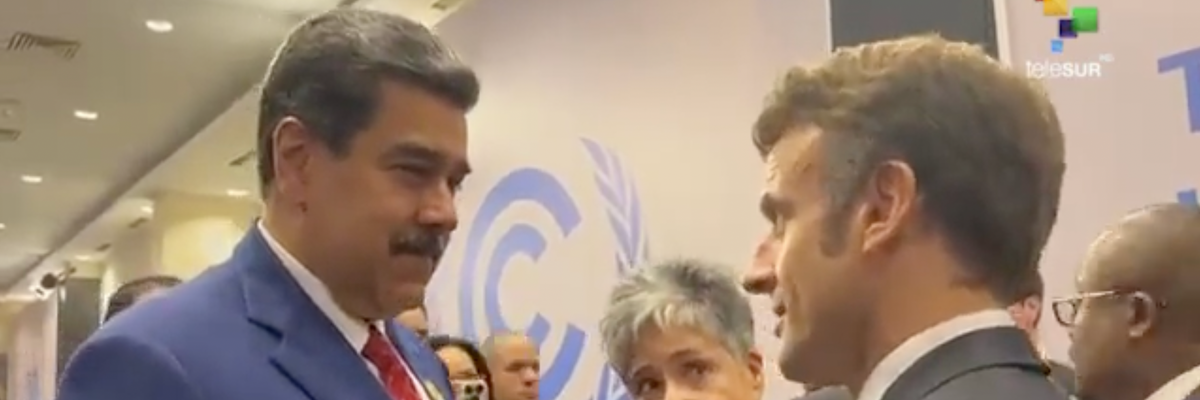After years of trying to isolate Venezuelan President Nicolas Maduro, the United States and its European allies appear ready to change their approach to dealing with the embattled leftist leader.
In a seemingly impromptu meeting at the COP 27 summit in Egypt, French President Emmanuel Macron told Maduro that he “would love it if we could speak at greater length,” signaling his interest in helping to mediate the political crisis in Venezuela. Macron also referred to Maduro as "president," affirming the European Union’s decision to stop recognizing opposition figure Juan Guaido as the country’s leader.
Maduro also held a warm conversation with Portuguese Prime Minister Antonio Costa, whom the Venezuelan leader invited to visit Caracas.
Even John Kerry, the Biden administration’s climate envoy, spoke with Maduro on the sidelines of the conference. The brief interaction was the highest-level U.S.-Venezuela conversation since March, when the top White House advisor on Latin America met with Maduro in Caracas.
The State Department later said Kerry’s conversation was “not planned or substantive in any way,” and a video of their chat seems to back up that claim. But the optics of the exchange, along with Maduro’s more productive meetings with European leaders, appear representative of a broader shift in Western policy toward Caracas.
“I saw Macron as trying to encourage Maduro to be part of a political solution in the region,” said William LeoGrande, a professor at American University. “That probably represents how the Biden administration is thinking about the way forward in Venezuela, even if they don't want to say it out loud.”
The policy of isolating Maduro, which started in 2019 after elections that the West viewed as a sham, has steadily lost support both within and outside of Venezuela. The country’s political and economic situation has deteriorated in the intervening years, in part because of comprehensive U.S. sanctions on the regime and the fact that the UK continues to hold more than $1 billion of Venezuela’s gold reserves.
But the leftist leader has shown himself to be more resilient than Washington originally assumed. As a result, many Latin American leaders have soured on the idea of ousting him, with new leaders in Brazil and Colombia pushing for a diplomatic end to the crisis in Caracas. And, as Russia’s war in Ukraine has driven concerns about global oil prices, Western leaders have begun to soften their stance on the internal politics of the biggest oil producer in the region.
President Joe Biden has been slow to move away from his predecessor’s policy toward Venezuela, likely because of the domestic political complexities associated with U.S. Latin America policy. But Biden has made changes at the margins, including opening up a backchannel that led to a prisoner swap last month.
In the meantime, Macron appears happy to take on a bigger role in Western policy toward Caracas.
“Macron seems to enjoy the role of diplomatic broker,” LeoGrande said. “He's played the same role in the conflict in Ukraine by sort of being the West’s channel to [Russian President Vladimir] Putin, and this seems potentially similar.”
















